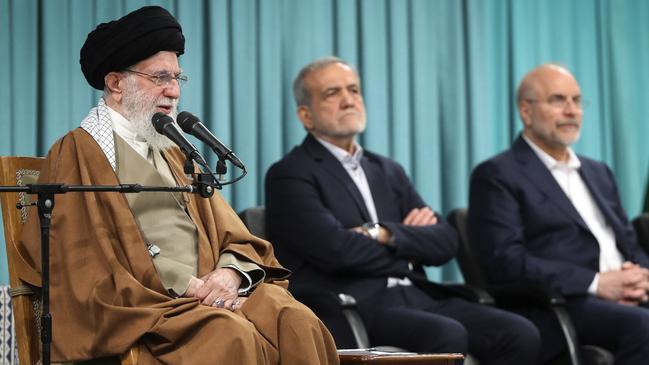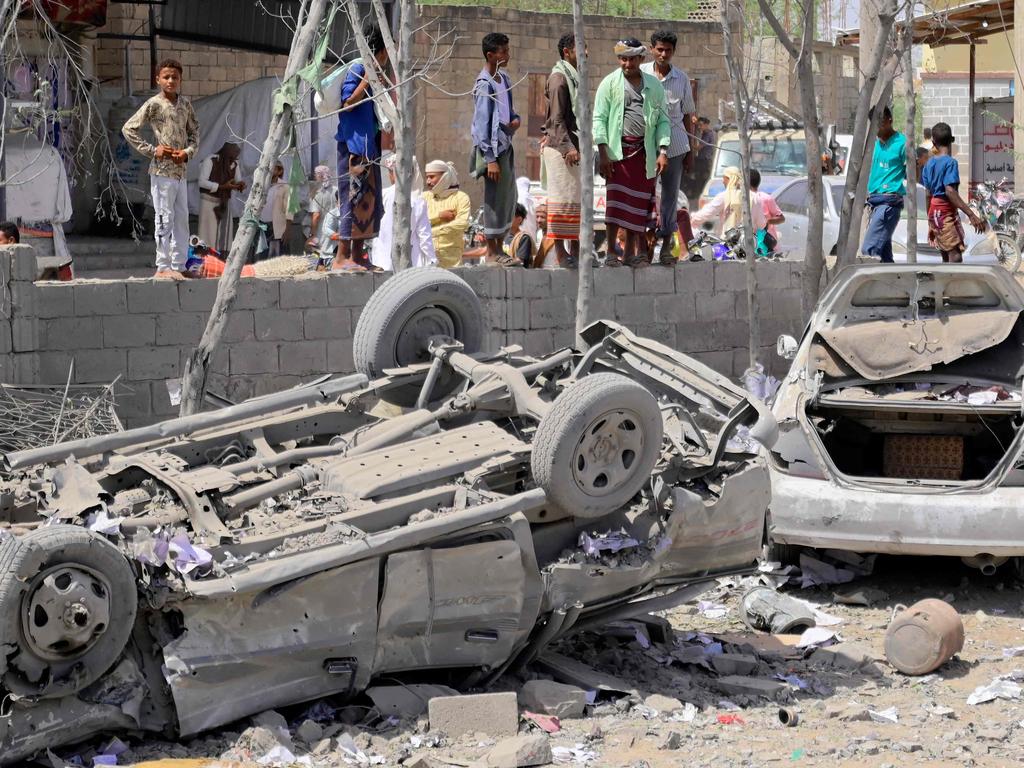Iran warns neighbours not to help US if it attacks
Iran has told its neighbours with American air bases in the Gulf that if they allow the US military to use their airspace or territory in the event of a strike they will suffer ‘severe consequences’.

Iran has issued stark warnings to its neighbours with American air bases in the Gulf not to support any potential US military strikes, and placed its armed forces on high alert amid increasing tensions between Washington and Tehran.
As the US increased its military presence in the region Iraq, Kuwait, the UAE, Qatar, Turkey, and Bahrain were issued notices warning that allowing the American military to use their airspace or territory in the event of strikes “will have severe consequences for them.”
As tensions ratcheted up and Iranian Foreign Minister Abbas Araghchi dismissed direct negotiations with the US over its nuclear program as pointless, Major General Mohammad Bagheri, Chief of Staff of the Iranian armed forces, warned that any attack on Iran would unleash a response that would be “swift, crushing, and irreversible.”
“We are not the ones who start wars, but we will respond to any threat with all our might,” he said.
He also claimed that a letter sent from Donald Trump to Iran’s supreme leader Ayatollah Ali Khamenei last month calling for negotiations but warning of military action if diplomacy failed was “laced with veiled threats”.
The Tehran Times - regarded as a mouthpiece for the regime - reported that the Ayatollah’s response was “resolute and grounded: Iran would not initiate hostilities, would seek peaceful nuclear energy, and given America’s unpredictability, would refrain from direct negotiations—though indirect diplomacy stayed a possibility”
The newspaper reported: “As Foreign Minister Araghchi cautioned, ‘Every nation has the right to its own evaluations and interpretations. Nevertheless, if any measures are taken [against us], we will view them as complicit.’”.
Last week, Mr Trump said he favoured “direct talks”, with Iran, arguing they were “faster” and offered a better understanding than going through intermediaries.
But Mr Araghchi said direct talks made no sense with a country “that constantly threatens to resort to force in violation of the UN Charter and that expresses contradictory positions from its various officials”.
“We remain committed to diplomacy and are ready to try the path of indirect negotiations,” he was quoted as saying in a statement issued by his ministry.
“Iran keeps itself prepared for all possible or probable events, and just as it is serious in diplomacy and negotiations, it will also be decisive and serious in defending its national interests and sovereignty.”
On Saturday, Iranian President Masoud Pezeshkian said his country was willing to engage in dialogue with the United States on an “equal footing”.
He also questioned Washington’s sincerity in calling for negotiations, saying: “If you want negotiations, then what is the point of threatening?”
Iran and the United States have had no diplomatic relations since shortly after the 1979 Islamic Revolution with some regional countries like Oman playing a mediating role between the two sides.
Western countries, led by the United States, have for decades accused Tehran of seeking to acquire nuclear weapons.
Iran rejects the allegation and maintains that its nuclear activities exist solely for civilian purposes.
In 2015, Iran reached a landmark deal with the permanent members of the UN Security Council, namely the United States, France, China, Russia, and the United Kingdom, as well as Germany, to limit its nuclear activities.
The 2015 agreement – known as the Joint Comprehensive Plan of Action – gave Iran sanctions relief in exchange for curbs on its nuclear program to guarantee that Tehran could not develop a nuclear weapon.
In 2018, during Mr Trump’s first term in office, the United States withdrew from the agreement and reinstated biting sanctions on Iran.
A year later, Iran began rolling back on its commitments under the agreement and accelerated its nuclear program.
Last week Ali Larijani, a close adviser to Ayatollah Khamenei, warned that while Iran was not seeking nuclear weapons, it would “have no choice but to do so” in the event of an attack against it.
With AFP





To join the conversation, please log in. Don't have an account? Register
Join the conversation, you are commenting as Logout